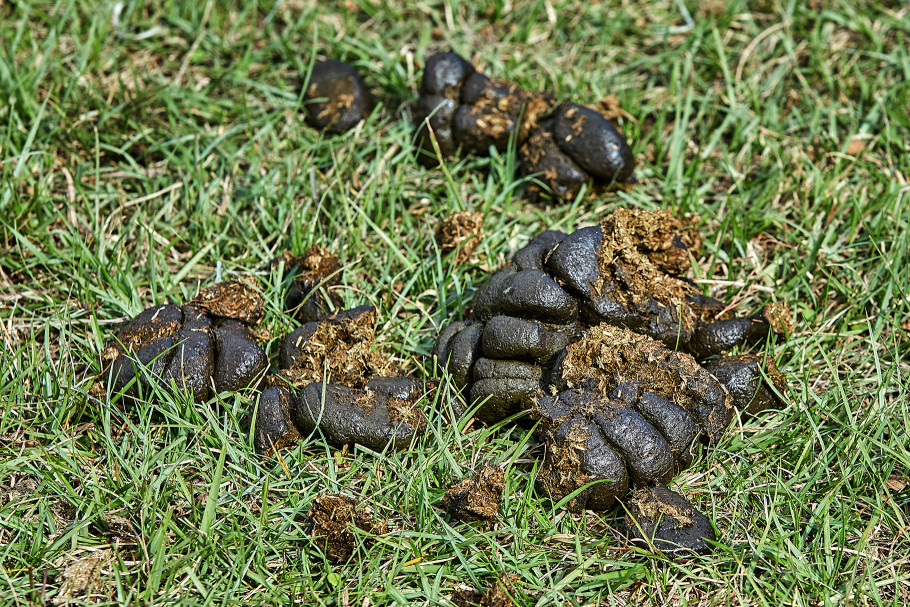Coprophagy in Horses - Manure-Eating
Updated August 10, 2023

Horses are one of few animals that may eat their own or herd mate’s feces. While this behavior may be considered harmless in a foal, it could be a sign of a health issue of deficiency in a more mature horse.
Coprophagia in Foals and Adult Horses
Eating manure can be a normal activity of foals, beginning at about one week of age and tapering off when they are approximately two months old.
Most experts believe that foals eat manure to populate their GI tract with beneficial bacteria or "good bugs" to help with digestion. Although, another theory suggests foals eat manure to take in parasite eggs and stimulate their immune system. Still, others propose that by eating the feces of others, foals learn feed preferences.
Adult horses, on the other hand, may eat manure because they lack nutrients and minerals or the chewing time associated with high-fiber diets.
Causes of Coprophagy in Horses
Horses may eat manure because they need more long-stem roughage. So, owners can try to prevent this behavior by either always keeping grass hay in front of their horses or allowing them to graze on pasture.
Diets should be carefully reviewed to make sure the recommended daily requirements of vitamins, minerals, protein, and other nutrients are being supplied. If not, fortified grain or a multi-vitamin and mineral supplement should be added to meet these needs. A fecal egg count test and proper parasite control program should also be taken into consideration.
If a horse is overweight or for any reason should not have full access to grass or hay, a muzzle or "slow feeder" can be used to limit the amount of forage the horse can take in while still keeping them busy with a chewing activity.
Horses that show behavioral or physical signs, such as colic, weight loss or performance issues, should be examined by a veterinarian to determine if a medical condition may be present.